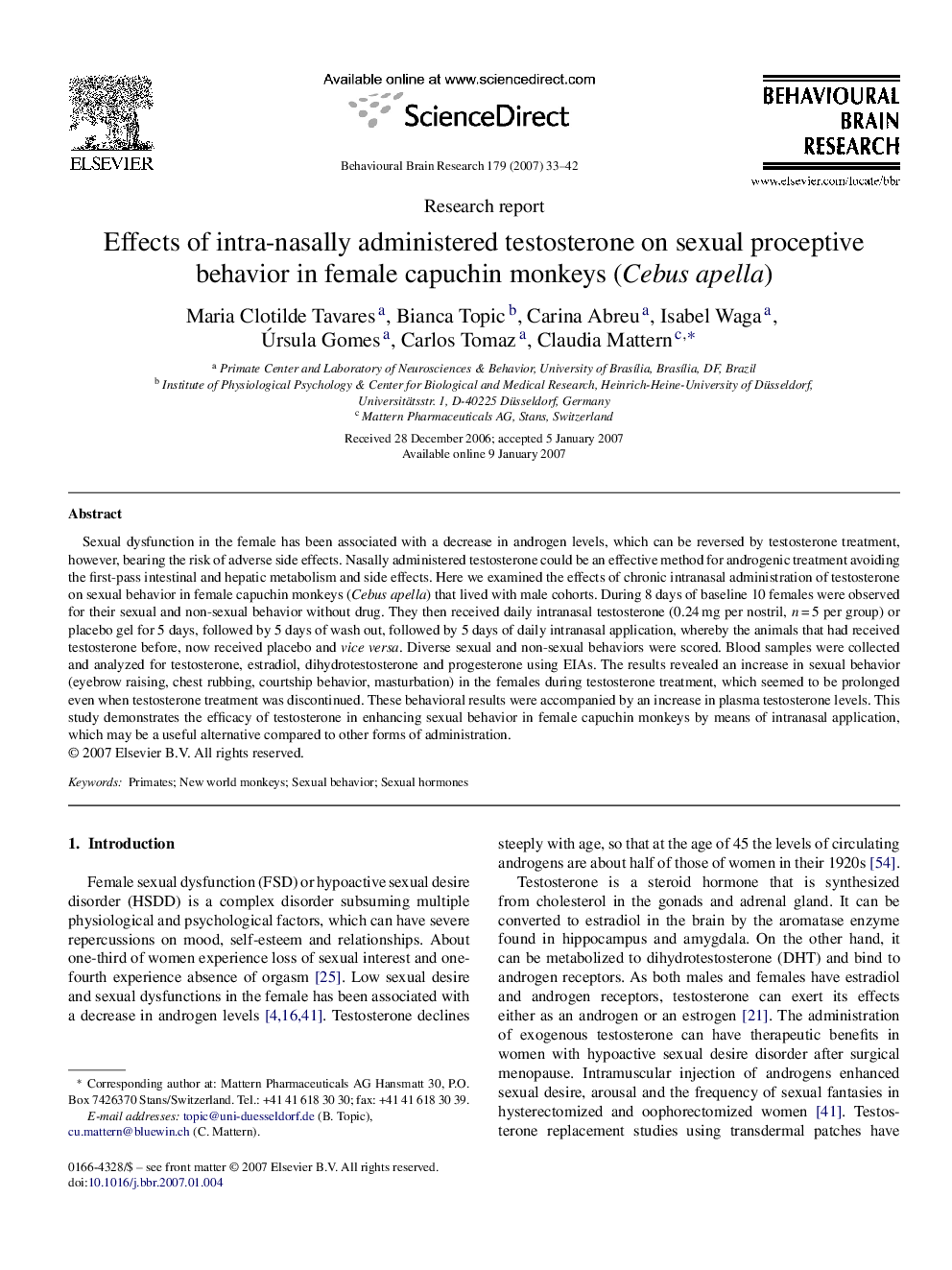| Article ID | Journal | Published Year | Pages | File Type |
|---|---|---|---|---|
| 4315769 | Behavioural Brain Research | 2007 | 10 Pages |
Sexual dysfunction in the female has been associated with a decrease in androgen levels, which can be reversed by testosterone treatment, however, bearing the risk of adverse side effects. Nasally administered testosterone could be an effective method for androgenic treatment avoiding the first-pass intestinal and hepatic metabolism and side effects. Here we examined the effects of chronic intranasal administration of testosterone on sexual behavior in female capuchin monkeys (Cebus apella) that lived with male cohorts. During 8 days of baseline 10 females were observed for their sexual and non-sexual behavior without drug. They then received daily intranasal testosterone (0.24 mg per nostril, n = 5 per group) or placebo gel for 5 days, followed by 5 days of wash out, followed by 5 days of daily intranasal application, whereby the animals that had received testosterone before, now received placebo and vice versa. Diverse sexual and non-sexual behaviors were scored. Blood samples were collected and analyzed for testosterone, estradiol, dihydrotestosterone and progesterone using EIAs. The results revealed an increase in sexual behavior (eyebrow raising, chest rubbing, courtship behavior, masturbation) in the females during testosterone treatment, which seemed to be prolonged even when testosterone treatment was discontinued. These behavioral results were accompanied by an increase in plasma testosterone levels. This study demonstrates the efficacy of testosterone in enhancing sexual behavior in female capuchin monkeys by means of intranasal application, which may be a useful alternative compared to other forms of administration.
